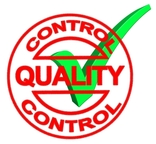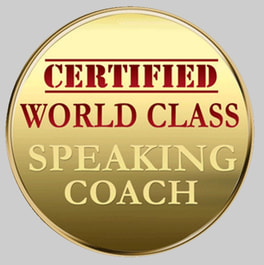
“Oops! That’s a tricky question. I don’t know the answer to this one...”
“I answered the question correctly so why won’t the questioner accept it and let me get on with my speech?”
These thoughts (and many more) have crossed the minds of many of my clients as they faced challenging Q&A-related situations. If you faced any of the above scenarios (or you are fearful you will) look no further. In part 2 of my 3-part Q&A blog we will explore some techniques that will allow you to minimise, avoid or solve the difficult scenarios that can arise during a Q&A.
In part 1 I made the important point that you should never finish your presentation with a Q&A. One of the reasons is because a Q&A can easily run over time if you don’t maintain a clear and confident control over the session.
The first thing you should do is set expectations for your audience about your Q&A. Make it very clear to them exactly how many questions you plan to answer, and how long you plan to spend on each. And give people an after-speech-option for fielding the questions you don’t have time for.
“Before I conclude I would like to spend 2 to 3 minutes answering 1 or 2 brief questions. And if I don’t get to answer your specific question you can talk to me afterwards.”
A simple straightforward statement like this achieves everything I mentioned above. Simple eh? Now your audience understands the framework and the structure… and you’ve given them an option to field additional questions after your presentation.
What happens if a member of the audience attempts to take over the session?
This can quickly become stressful because your time evaporates. The solution depends on what your questioner is doing. It’s usually something like:
- They are so passionate about the question they forget the framework you laid down
- They want to give their own speech
- They are not getting the answer they want
There are many solutions, but the best ones usually involve parking the question and questioner with the offer to continue in private after the session has finished. Note, it is important to respect the questioner and anyone else equally devoted to getting the answer to that specific question. Say something like:
“That is a great question and clearly it deserves a speech of its own. If it’s okay with you <the questioner> I would like to take 1 or 2 more questions, and afterwards we can continue this discussion. Anyone else who’s interested in joining us is most welcome.”
It’s called the parking technique and it works very well for all situations where time is of the essence. If your questioner argues with you, state that you would like to respect the rest of the audience by fielding 1 or 2 more questions in case anyone needs to leave quickly due to time constraints. Always come back to the issue of time, and the fact that you want to respect everyone equally.
What happens if you don’t know the answer to a question?
You can reduce the chances of coming up against this issue by preparing as much as you can before your presentation. For example, you could list between 5 and 10 questions you may be asked, and craft answers for them. That said, there's always the chance you will face a question you don't know the answer to.
The Speechcamp solution is to be honest but emotionally empowered in your honesty. This can seem challenging for many speakers. Some of my clients give me a reaction along the lines of, “Doesn’t it look silly if I don’t know what I’m talking about?" or "If I don’t know the answer I’m a failure, right?” or "But I'm supposed to be an expert."
Sure, I could give you rhetorical techniques for bluffing and deflecting questions in a way that might save the day. And you could always ask someone else in the audience for an answer – in effect, turn your Q&A session into a brainstorm (if it’s appropriate to the context you are in – for example, it’s not useful to try this during a job interview). However, the best solution is… honesty!
“I don’t know the answer to that one, but I will find out for you…”
“I don’t know the answer to that question but I would love to learn…” (great for job interviews)
“I don’t have an answer for that one, but here’s what I do know about it…”
If you use the last line make sure your answer is relevant, useful and directly related to the question. If not, don’t bluff or fill in with the answer to another question. It’s potentially frustrating for your audience.
The key is to be emotionally empowered. Firstly, cast aside your limiting beliefs about being “stupid”. Stop kicking yourself for not preparing well enough in advance. That inner "perfectionist" voice in your head may have been your best friend during preparation but it can quickly become your enemy in the heat of the moment. Don't let your ego trip you into thinking you need to be a know-it-all. The fact is, you did your best and you are now in this situation, and unless your audience gives you 5 minutes to “phone a friend” (or indeed ask the audience) you have to accept that you don't have the answer. Instead, you should approach the situation in a way that holds your sense of confidence and worthiness.
Let me help to soothe your limiting beliefs with the following 3 absolutely true statements…
“There is no such thing as a speaker who knows everything about everything all the time.”
“There is nothing wrong with admitting you don’t know the answer to something, but you can always make a promise to find that answer. It’s called learning. Everybody does it from the day they are born until the day they die. Anyone who claims that expertise equals 'no more learning needed' is delusional.”
“An honest, earnest and passionate personality far outweighs a know-it-all or a bluffer.”
This last statement is particularly important to keep in mind during a job interview.
During a corporate presentation there is absolutely nothing wrong with saying:
“That’s a great question. Unfortunately I don’t have the answer to that one but I will find it for you, so please give me your contact details afterwards, and I will get you the answer. For anyone else who is interested in the answer give me your details and I will send you the answer as well.”
It really is worth it to understand this point because, though you may pride yourself in being an expert in a particular field (and/or you put pressure on yourself to know it all) these are traps of the ego. The fact is that there may come a time when you don't have an answer. A coward believes they should know everything all the time. The measure of a true master is accepting when you don't know something (and indeed, embracing it) and dealing with it in an empowered way.
By the way, if someone else in the audience offers to answer, let them. That’s a classic win-win situation. Only a limiting belief like, "Damn, that person knew the answer and I'm supposed to be the presenter - I'm the one who should know" will threaten to lower the energy. Another ego trap! And if someone else in the audience holds the mirror to that belief - "Wow, the presenter should have known that answer" - that's their business. Good luck to them with their dis-empowered limiting belief. They will have to grapple with it during their own Q&A sessions. What those people think of you is of no concern to you. Focus on the people who understand the realities of being a human being. Focus on the people who respond to an confidence, engaging, empowered personality (i.e. every well-balanced person in the audience).
And if you believe that a job interviewer is only looking for the candidate who gives the most correct answers to technical questions you are missing a trick. An emotionally empowered passionate person who knows the answer to enough questions to honour the job is at least (if not more) employable. Remember, if you look like you have an issue with not knowing the answer to a question (if it phases or knocks you off balance) that's potentially a bigger issue, though even that's more forgivable than being a bluffer. We tend to think of interviewers as monsters. Would it surprise you to know that being an interviewer is as difficult as being the interviewee? I will explore the world of job interviews in a future blog, so stay tuned...
Being emotionally empowered means being comfortable, passionate, non-judgmental, enthusiastic, honest and realistic. To be frank, emotional empowerment is gold-dust for public speaking, far and above needing to know everything. Sure, it is nice to have both knowledge and emotional empowerment (and strive for it), but if you have to choose in any moment, pick feeling good. Feeling good = better presenting = a better experience for your audience overall.
To quote Abraham Hicks, “Would you rather be right all the time, or happy?”
In part 3 I will share more top tips for succeeding with your Q&A sessions.
Author: Eddie O'Hanlon (speechcamp.ie)


 RSS Feed
RSS Feed
